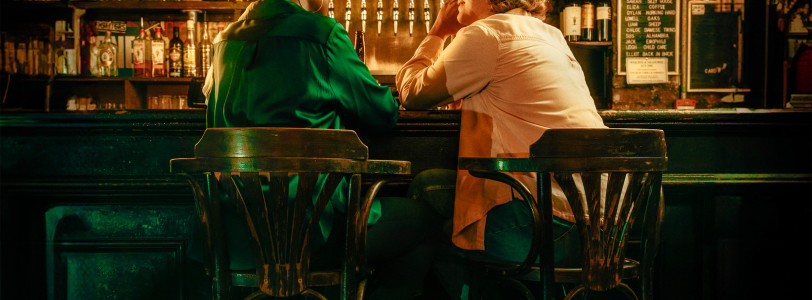On the factory floor, dreams, laughs, woes, and fears are held. Friendship, once forged in sweat and steel unravels with each passing day.
A probation office. 2008. Two young men, Jason (Lewis Gribben) and Chris (Abdul Sessay) are navigating their anger, shame, and guilt after a crime they’ve committed. Eight years before, their mothers, best friends Cynthia (Carla Henry) and Tracey (Pooky Quesnel) have worked ‘on the floor’, in a steel factory, for all of their adult lives. After competing for a role as Warehouse Supervisor, to which Cynthia is promoted, the walls of this once fortuitous community come crumbling down. Economic tensions bleed into social, interpersonal, and racial tensions. Overbearing external pressures - the decline of industry, the dwindling hope of opportunity, the failure of the American dream - turn inwards. Characters, completely unable to control the situations around them, channel their lack of power through resentment and anger, towards each other.
Performances from Pooky Quesnel and Chris Jack, who plays Cynthia’s husband Brucie, stood out the most for me. Jack’s movement, astutely demonstrating the physicality of addiction and performing vulnerability that was interspersed with light comedic quips were striking for a relatively smaller part. Quesnel’s range, from a brash and fierce force to cowering in the shadows in the face of her crippling powerlessness deftly translated the bountiful nuance and complexities of working-class identity.
What stood out emphatically was the sharp-witted observation of human relationships. Nottages' text is steeped in observation, and Lewis enhances this through the setting, stage, and movement of the actors. The workers begin as a community, a family in many ways, who spend their days on the ‘floor’ and their nights in the bar. Stan, the bartender, holds space for the group’s anxieties, tension, pain, also their happiness and freedom - most often found in the bottom of a beer bottle. A motif of birthday celebrations, each successive one starkly less populated and joyous than the last, signal to the inextricable tie between economic and social tensions.
Sweat is dynamic, from the layered writing to the sound design. As the characters seamlessly transition from weary evenings to taxing days, news announcements enveloped the stage; echoes of the swiftly changing world these characters find themselves in. Actors would move through eruptions of dance, run and fall around the stage, or stand still, static, suspended through time. Flashes of a warm, heady orange accompanied the nights at the bar as the show began, and as the relationships unravelled, a cold, condemning blue filled the air. The stage itself, minimal but multi-purpose, acts as a bar, the factory floor, a probation office, a home. The stage would spin clockwise, the characters finding themselves in the middle of a world constantly moving, falling into rhythms that they can’t quite catch themselves in.
Not without joy and comedic resolve reminiscent of sitcoms, laughs were collected from the crowd, as were gasps and scoffs. The setting of Royal Exchange itself is unmistakably participatory. The audience are invited, involved, and complicit. Looking towards characters who are recognisable, who echo strife, anxiety, fear, but also happiness, freedom, community that we can find tangible connections to was important for Lewis to translate. In the electric fight scene, watchful eyes peered over the gallery and audience members in the round dodged stumbling actors. The space was used to its full potential.
The devastating impact of the decline of industry, the loss of livelihood and decimation of community were felt in each emblem of the play. I did, however, feel the nuances of Jason and Chris' guilt, anger, and shame, could have been fleshed out more, as the play clearly intends to understand why fear, resentment, and anger take a hold of us when we have no other battleground to occupy. Sweat did hold up a mirror to the past, present, and future - a mark of good theatre - and Lewis brought a revival to a play written 24 years ago that still is as astoundingly resonant for the working-class struggle as it was then. The lives lived in Sweat can be found anywhere, at anytime.
Sweat is running until Saturday 25th May 2024, at the Royal Exchange Theatre, Manchester. You can find more information and tickets here.







0 Comments